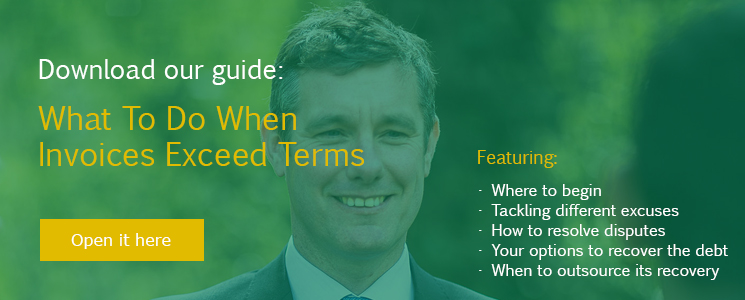Should you offer payment plans to late paying customers?
01/06/2020
When recovering overdue invoices on behalf of our clients at the moment, a large number of debtors we’re contacting are telling us they’re unable or unwilling to pay as a result of the COVID-19 pandemic and uncertainty that remains.
This is a challenge that credit controllers across the country are having to contend with and find ways around. While some are in the fortunate position to be sympathetic with the pressures on customers and offer payment extensions, others need to secure payment quickly to support their own business’s cash flow.
One solution that is becoming increasingly popular at present is payment plans. When it’s clear that a customer will not pay an invoice in full – whether they’re unable or unwilling to – sometimes it can be really helpful to break the sum owed into more manageable chunks over an agreed period.
So what are the key considerations around payment plans? Who do they benefit, and should your business offer them?
Why offer payment plans
Payment plans can be a great negotiating tool when faced with a customer who’s refusing to pay.
While they may not be able to afford to repay an invoice in full, paying a smaller amount over several weeks or even months can be far more manageable and ensure that cash continues to come into the business.
Last year we received the final instalment from one of our client’s customers almost eight years after the first one was made. While this is an extreme example, with a huge number of mitigating factors at play – nor a length of time we’d recommend – it demonstrates how a payment plan can be better than nothing.
It can also help to cement your relationship with your customer. If they’re struggling themselves, they’ll understand the pressure on your business too. But by being sympathetic to their situation and working with them to agree a suitable workaround, they will no doubt appreciate this stance and serve to strengthen the relationship going forward, which could lead to repeat business and added customer loyalty.
Related articles:
- How will coronavirus affect my business getting paid on time?
- 3 ways to support COVID-affected customers (and still reduce late payment)
- How to choose a debt collection agency
It’s also important to highlight the increased risk of business insolvency at the moment. Payment plans can ensure that at least some money is recovered before a customer potentially goes bust, whereas should you hold out for payment in full and they fail, the likelihood of recovering any of what’s owed will fall dramatically.
Should you go ahead with payment plans, be sure to agree instalments and a repayment period that works for your business and ensure that each instalment is paid on time – ideally with the first payment made immediately. Standing orders can be a great way to ensure payment happens automatically in the background, and it can be worth sending reminders a couple of days before each instalment is due.
It’s also important to get what you agree in writing, so that you can fall back on this should the arrangement not be met and you need to instruct a debt collection agency to recover the remaining sum in the future.
Should your business offer payment plans?
Clearly this is an important question. It’s no use offering a payment plan that’s going to do more harm than good to your business, especially if the customer’s excuses are merely delaying tactics and payment in full could be received by applying a bit more pressure.
Use cash flow forecasts to help you calculate the minimum amount you would require and how often you need that money coming in, and keep that in mind when discussing with the customer what they can afford to pay.
Where you’re unsure the customer’s excuses are genuine or their payment is urgently needed, using a debt collection agency will often be the encouragement they need to find the money to pay you. Should the same excuses be made, payment plans can still be arranged but by then you’ll have a better peace of mind that you’ve done what you can to recover payment in full.
Given the conditions at the moment, one potential approach would be to offer payment plans to customers you’re struggling to recover payment from where the invoice was raised before the pandemic hit the UK. This shows your understanding to customers’ situations, and will keep cash flowing into the business.
Where orders were made and invoices raised since, it’s sensible to adopt a stronger approach to recovering payment as the customer would have known the situation when making the order.
Given the current conditions, it’s highly likely that payment plans will become increasingly common in the coming months as businesses struggle to manage their cash flow. The key thing is to ensure you do what’s best for your company and take the approach that maximises the likelihood of payment being received in full.
If you’re struggling to recover payment from customers at the moment, call our professional and award-winning debt collection team on 0800 9774848 to discuss your options, or get a quote to see how much we’d charge to successfully recover your invoice.
























Comments